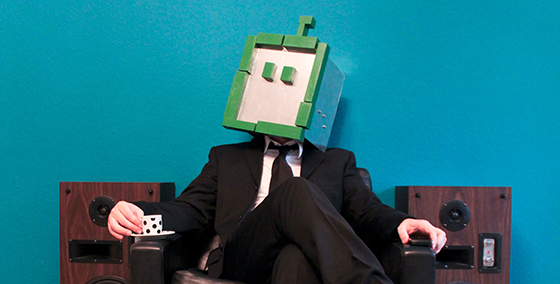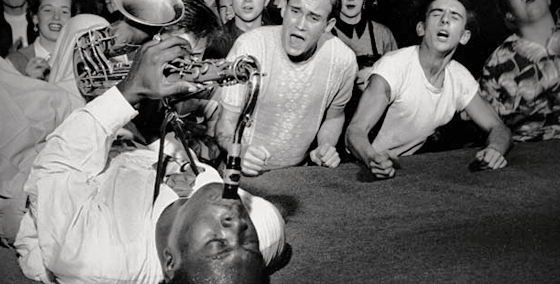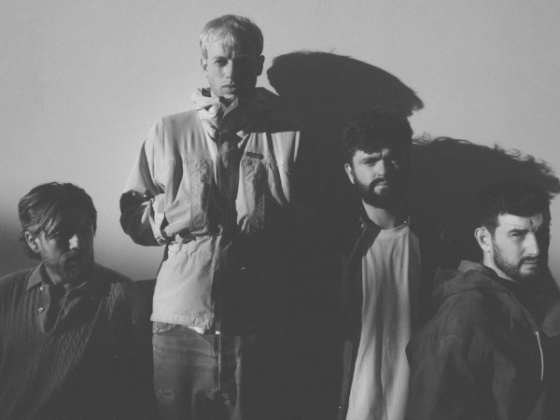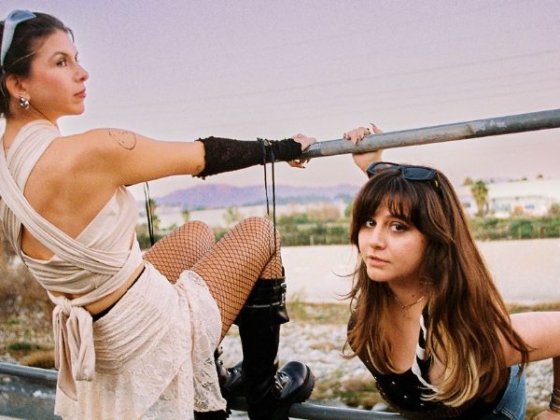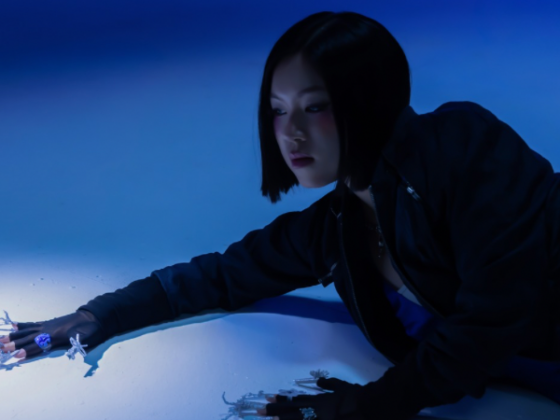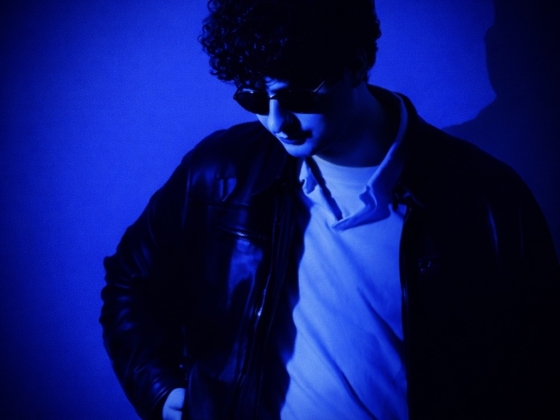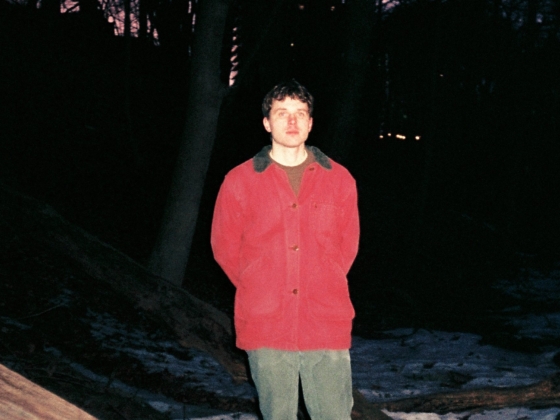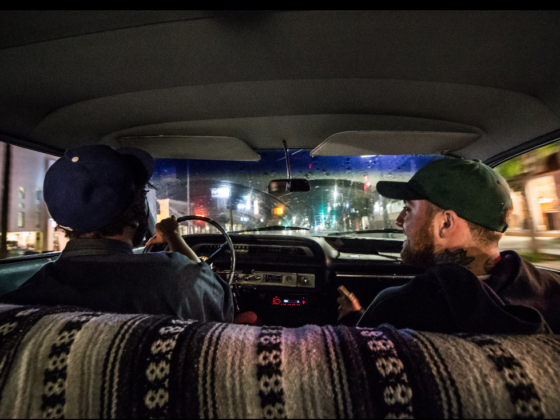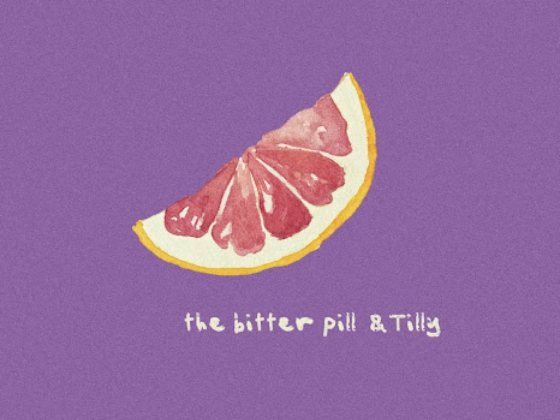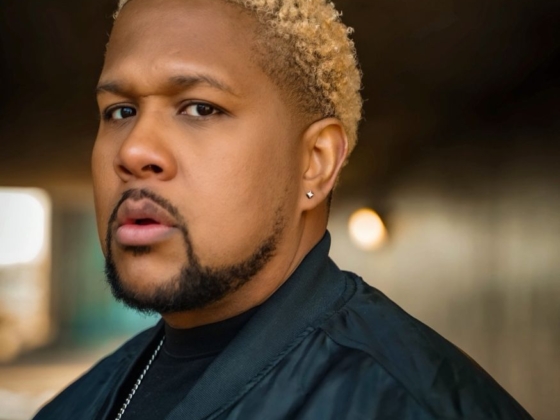Anna Lunoe's got a lot going for her lately. She just released her amazing single "Breathe" (out on Fool's Gold/Ultra Records), wrapped up her summer tour with Bag Raiders, and is now opening for The Weeknd all across the US. It's no wonder she sounded so happy during the interview, the young DJ/producer has got the world at her feet right now. She's an amazing talent that has cultivated her craft for so long, and her dedication to her work is perfectly paired with deep passion and true love for what she does. We at Earmilk had the wonderful opportunity to chat about what she's been up to lately, where we learned a bit about Australia, her music, and her advice to future music-makers out there!
EM: Hey there, thanks for taking the time to do this interview! So you just started your tour opening for The Weeknd and you recently just finished a different tour with Bag Raiders. What is it like to try to prepare for the two very different acts? How do you go about preparing to open for someone like The Weeknd?
Anna Lunoe: [This tour is] definitely different than going on tour with the Bag Raiders, which definitely feels more natural for me, it wasn't a big stretch from my usual stuff. But I mean, I play different sets all the time so I'm used to constantly changing it up. Preparing for the Weeknd tour like… I just went down a couple of paths I've wanted to musically, and looked into playing [the latest stuff from] people who I think are doing some cool things, and got them to send me all their tracks. I also just basically scoured the Internet for as much good music as I could find. I wanted to do something that was really in keeping with The Weeknd's show, and will appeal to people that like him, but also show a little bit of my thing and more sort of house and dance music orientation.
[soundcloud url="https://api.soundcloud.com/tracks/109184295" params="" width=" 100%" height="166" iframe="true" /]
[soundcloud url="https://api.soundcloud.com/tracks/84176407" params="" width=" 100%" height="166" iframe="true" /]
EM: Do you have any artists that you tend to lean to and play to open for him?
AL: Well, this is the first time, so I can't say for sure, but I definitely, this time around, would say Kaytranada. I'm also playing a lot of my own stuff, everything from Disclosure to Ryan Hemsworth; even Duke Dumont, DJ Sliink, lots of hip hop acapellas, and just trying to construct something that bridges the gap between the two genres.
[soundcloud url="https://api.soundcloud.com/tracks/109180145" params="" width=" 100%" height="166" iframe="true" /]
[soundcloud url="https://api.soundcloud.com/tracks/108709381" params="" width=" 100%" height="166" iframe="true" /]
EM: Did you have a lot of time between the two tours?
AL: I think one or two weeks, I can't remember now. I had to go to Europe during that time so I think two weeks?
EM: That's pretty intense! What do you do to wind down and de-stress?
AL: I mean, when it's something you love doing it doesn't matter if its stressful because you're excited. You don't really think about being tired. If I thought about how tired I was all the time I'd probably feel like giving up. I'd be focusing on the wrong thing. The cool thing about it all is that I get to do what I love and travel and play music that I love and even if I'm exhausted usually I just work anyways because I want to but every now and then I totally max out and I literally have to sit in a bed in front of a screen and just recover.
EM: I definitely understand that feeling!
AL: Yeah! And cook good food. I just want to cook good food and eat it!
EM: Actually, I've always been curious about Australian food. I always hear about fairy bread.
AL: Who has been telling you about fairy bread?! It's something I haven't eaten in like 20 years. It's something you'd have at like your 3rd birthday party. It's just like bread and butter and hundreds and thousands. I think like 20 years ago we weren't super into junk food. We didn't have tons of packs of chips, I don't think we really got a lot of that stuff until the mid nineties. So growing up, we didn't have individually wrapped packs of chips to take to school, or roll-ups or anything. All that stuff sort of came out in the early nineties, but like we just didnt really grow up with that stuff, so fairy bread is kind of our old-fashioned junk food for kids. It's easy to make.
EM: Okay, getting back to the music, have you had any favorite shows of the year?
AL: Hmm, my memory is really bad. Let me think… oh, I've played a bunch of cool shows. I played in Panama at a beach party and that was one of the best shows of the year. I played at the Kaleidoscope Festival in Eugene, and that was one of the best for sure, a bit like a hippie festival, a kind of burning man. The crowd was just really pumped and I actually stage dived for the first time in my entire career and it was really fun. I also had a really good show in Denver, and at Le Bain in New York, I had a couple of good shows there as well.
EM: Do you find that people in the US are more and more receptive to your dance style, as people start to go beyond the big massive scene that blew up a couple years back?
AL: Yeah, definitely. I think this scene is really open to the kind of music I play at the moment. I mean, it was bound to happen. People are diving into this genre more and more and finding out about all the other things happening, it's really cool.
EM: Do you think moving to the US has had a positive impact for yourself?
AL: Yeah, it's just a bigger place. In Australia, there's five capital cities, like five big cities. There's limited places to play. It is a cool scene, but it's still very limited. By being here and having more places to play and more people to meet, I'm playing a lot more gigs. Australia doesn't quite have the depth in the club scene. If you play something a little different, it might be harder to finds place that will want you to play it again. There's just not as many people as there are here.
EM: What do you miss Australia?
AL: I miss my friends and family, I miss the dance music community. All the people I would hang out with and play with. But the cool thing is that all the DJ's are always touring so I do get to see them, but I hate when I miss out on parties, I see it on Instagram and I'm like, "oh I should be there…", but it's all good. I've made a lot of cool friends here and I'm having a really great time so it all evens out.
EM: That's great. I also wanted to ask you about your single,"Breathe." I'd always thought of you as a DJ first and then producer…
AL: Yup, I was definitely a DJ first and then I had a radio show, and then I started producing. But I had been songwriting for a long time, I played acoustic guitar and piano as a teenager.
EM: When did you make the decision to start producing?
AL: I guess I always thought it would happen, but I wasn't necessarily in a hurry. I learned how to use Ableton and then I… well, I was just really busy DJing. I mean, I really loved it and took it really seriously. It wasn't like I learned how to DJ to produce, I was really into djing and really happy traveling to festivals and then I decided I was ready. It was something that I had wanted to do and so I did.
EM: What's your setup like?
AL: Well, I work on Ableton, good monitors, nice soundcard, good mic, and just a MIDI keyboard and just a whole bunch of soft synths.
EM: Would you say there are any artists we should be listening to out there right now? Who are you listening to?
AL: Oh… who am I listening to these days. I mean, I'm listening to hundreds of different people each week. It's too hard, I don't know how to answer that question!
EM: Do you have any advice for people trying to get into the DJ/production game?
AL: I think it takes a lot of guts and a lot of resilience. DJing is one thing, and it takes a whole different set of guts to start making your own music and commit to that. I guess I would say [that the best advice is to] just trust yourself. Start producing and well, what happens is you might start DJing and then start producing, and everything you make sucks at first, because you know what sounds good. It takes a long time to make stuff that sounds [like what you want], and it's a just part of the process. I think they say like it's 1000 hours before you're any good at anything, and I think you just need to keep on going. A lot of people start producing and figure out how hard it is and then get freaked out with how difficult it is and give up. My best advice would be to really stick with it and don't be afraid to ask for help.
And I think when you're in like a band, you'll have one person write the bassline and someone else work on the drumline and then everyone works together and bounces [ideas] off each other, but being producer can be a solo pursuit, and it can be hard to keep your energy up and to keep telling yourself [to] keep going, so I guess my advice would be that it doesn't come easy to everybody, like no one, even [someone] like Flume. All these young kids that are coming out and they seem to be spilling out songs, it still takes years of hard work. Also, don't think you're too old. Everyone is always like, "oh… I'm 25, I'm too old to do it," and it's just like, oh my god, just start working!
EM: Thank you Anna!
Anna Lunoe


